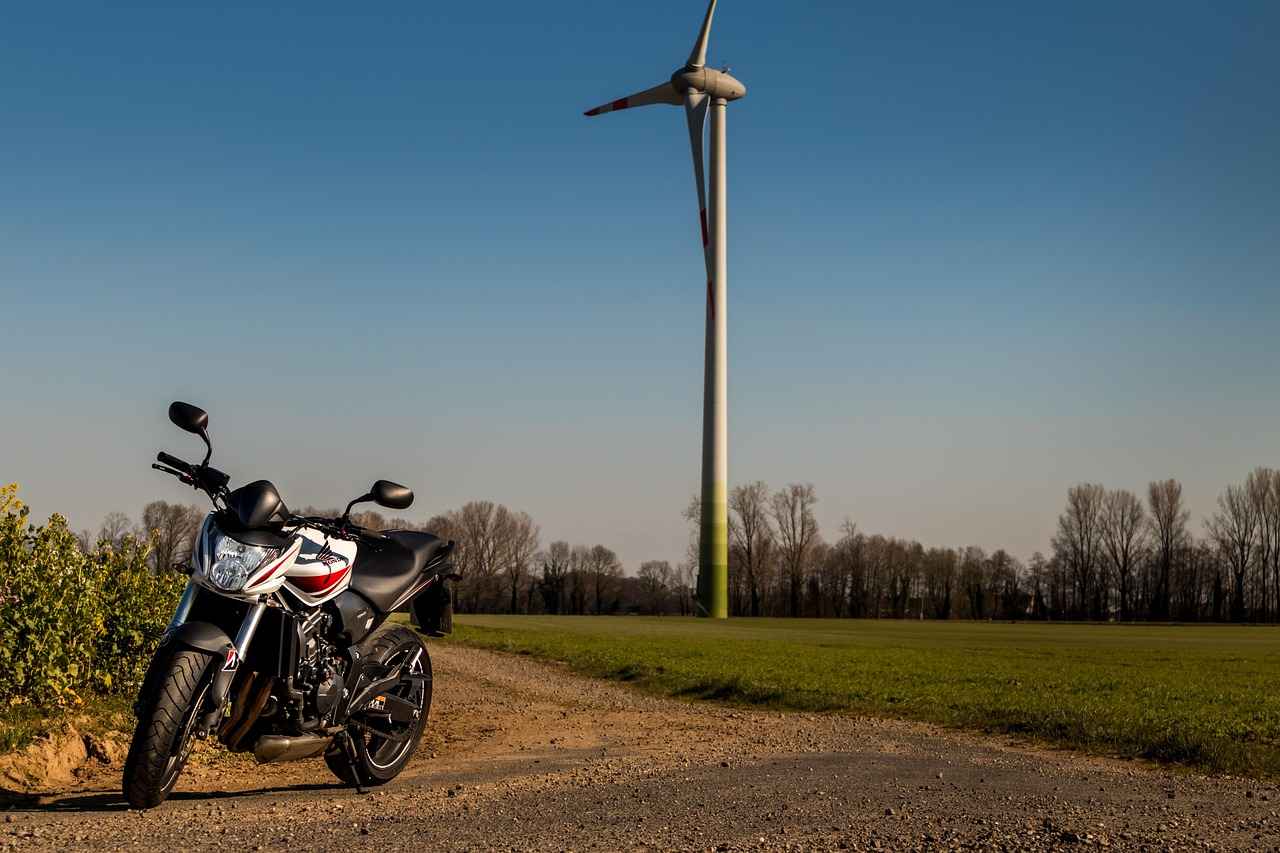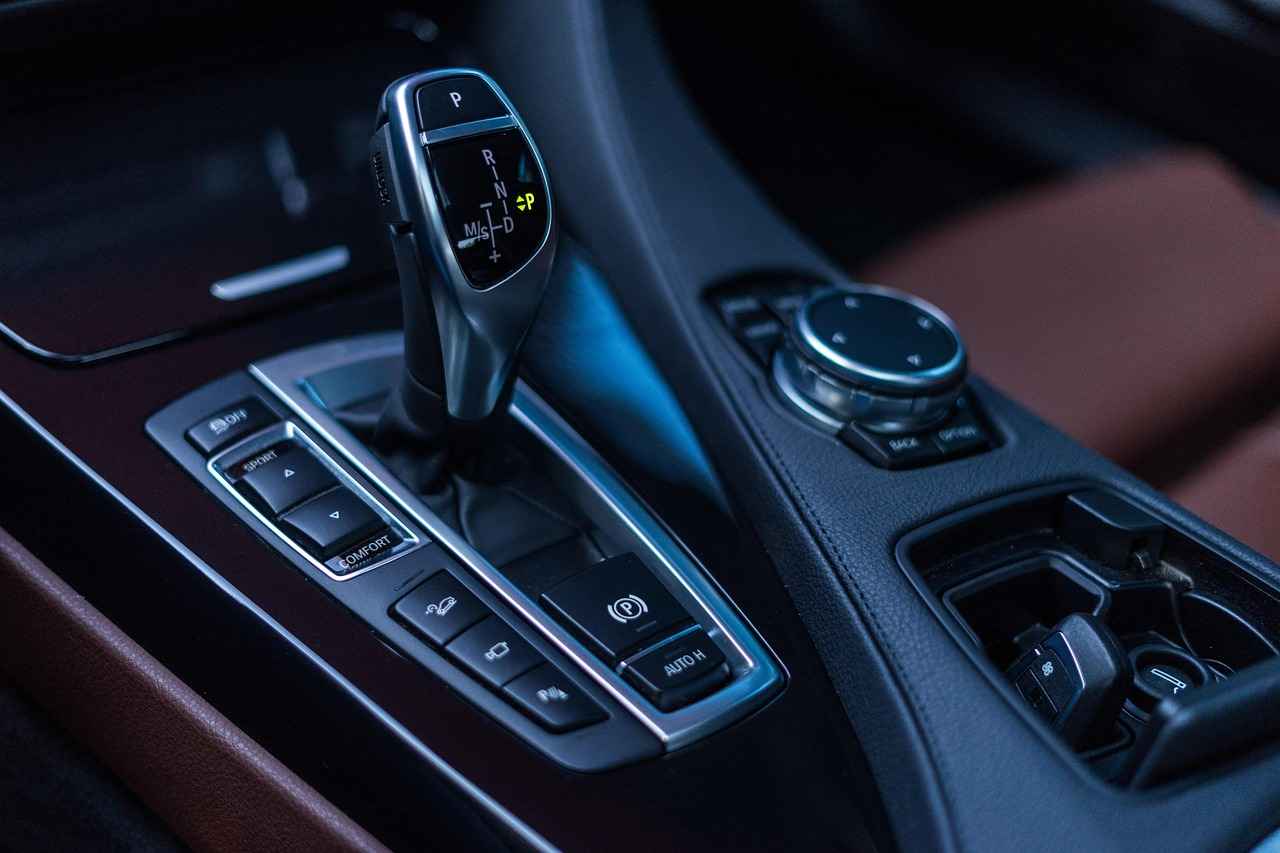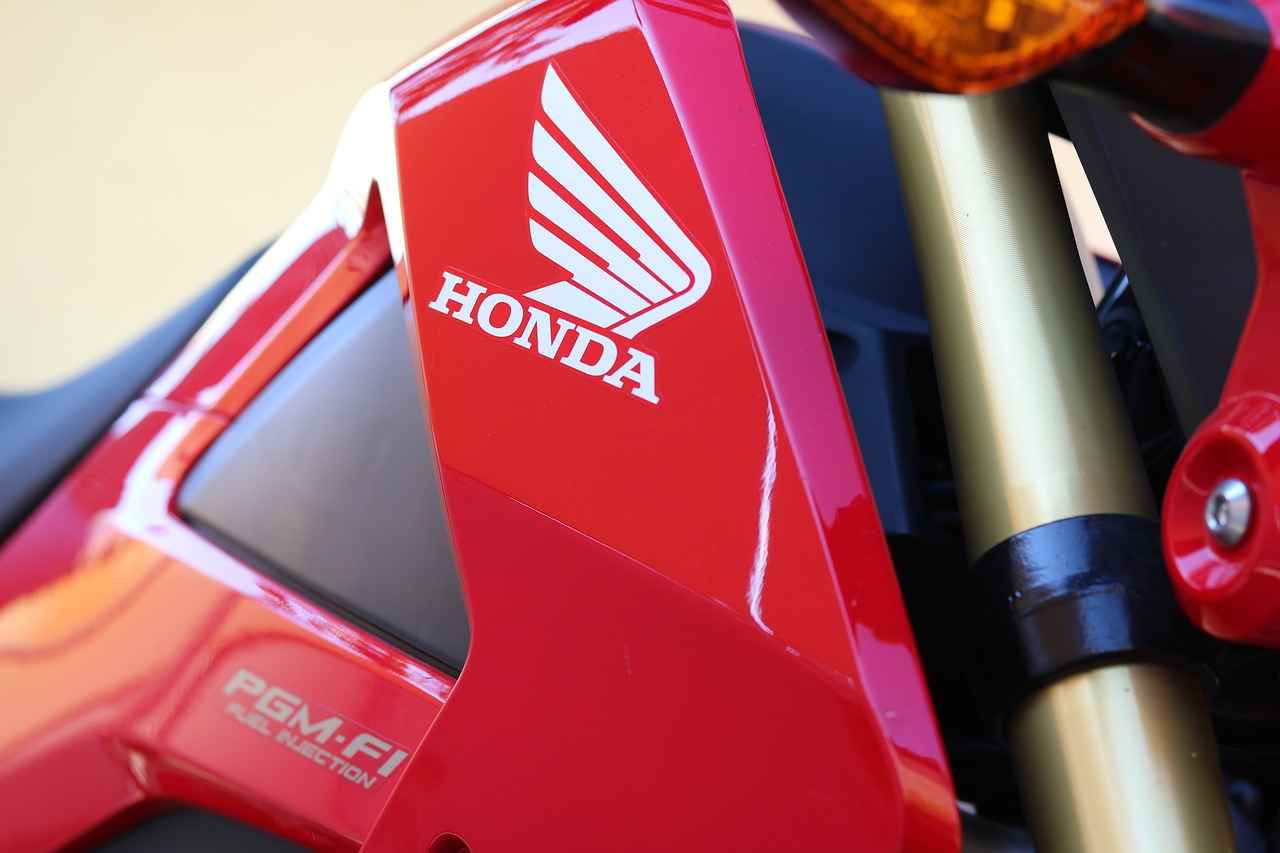The Honda Accord is one of the most popular midsize sedans on the market, known for its blend of reliability, performance, and comfort. A common question among potential buyers is whether this vehicle comes equipped with four-wheel drive (4WD). In this article, we will delve into the drivetrain options of the Honda Accord, its performance characteristics, and how it compares with other vehicles in its class.
Four-wheel drive is a drivetrain system that distributes power to all four wheels of a vehicle simultaneously. This feature enhances traction and stability, making it ideal for challenging terrains such as off-road trails or slippery roads. However, it is important to note that not all vehicles are designed with 4WD capabilities.
The Honda Accord is primarily designed as a front-wheel-drive vehicle. This means that the engine’s power is directed to the front wheels, which is a common configuration for many sedans. As of now, the Accord does not come with a four-wheel-drive option, focusing instead on delivering a comfortable and efficient driving experience for daily commutes.
With its front-wheel-drive system, the Honda Accord provides a different driving experience compared to vehicles equipped with 4WD. The front-wheel-drive layout generally results in better fuel efficiency and a lighter overall vehicle weight, which can enhance handling and performance on paved roads.
- Improved Fuel Efficiency: Front-wheel-drive vehicles typically consume less fuel than their 4WD counterparts.
- Reduced Weight: The absence of a complex 4WD system contributes to a lighter vehicle, improving performance.
- Enhanced Handling: Front-wheel drive often provides better handling in normal driving conditions, making it ideal for city and highway use.
While the Accord does not feature 4WD, it performs well in various driving conditions. Thanks to its well-engineered suspension and quality tire options, the Accord offers a smooth ride in most weather scenarios, including rain and light snow.
When compared to competitors like the Toyota Camry and Nissan Altima, the Honda Accord stands out for its reliability and comfort. Despite lacking a 4WD option, many drivers appreciate the Accord’s overall performance and value.
If four-wheel drive is a critical feature for potential buyers, Honda offers several SUV options such as the Honda CR-V and HR-V, both of which provide all-wheel drive capabilities for enhanced traction and stability.
The Honda Accord is equipped with features like adaptive suspension and advanced traction control systems. These elements work together to ensure improved handling and stability, making the vehicle competent even without the 4WD feature.
The Accord comes with various engine options, including turbocharged variants that enhance its performance. These engines deliver a balance of power and efficiency, making the Accord appealing to a broad range of drivers.
The Honda Accord consistently receives high safety ratings from organizations such as the National Highway Traffic Safety Administration (NHTSA) and the Insurance Institute for Highway Safety (IIHS). Its robust design and advanced safety features ensure peace of mind for both drivers and passengers.
While the Accord is not specifically designed for off-road use, its handling capabilities and adequate ground clearance allow it to navigate light trails and unpaved roads with caution. However, for serious off-road adventures, a vehicle with 4WD would be a more suitable choice.

What is Four-Wheel Drive (4WD)?
Four-wheel drive (4WD) is a sophisticated drivetrain system that allows a vehicle to distribute power to all four wheels simultaneously. This mechanism significantly enhances traction and stability, especially when navigating challenging terrains such as mud, snow, or rocky surfaces. Unlike two-wheel drive systems, which only power either the front or rear wheels, 4WD ensures that all wheels work in unison, providing a more controlled and confident driving experience.
4WD systems can be categorized into two main types: full-time and part-time. Full-time 4WD is always engaged, allowing for seamless transitions between different driving conditions without driver intervention. In contrast, part-time 4WD requires the driver to manually switch between two-wheel drive and four-wheel drive, depending on the terrain.
One of the key advantages of 4WD is its ability to improve off-road capabilities. Vehicles equipped with this system can tackle steep inclines, deep snow, and uneven surfaces more effectively than their two-wheel drive counterparts. Additionally, 4WD enhances vehicle control during adverse weather conditions, making it an appealing option for those living in areas prone to heavy rainfall or snowfall.
Furthermore, many modern 4WD systems come with advanced features such as traction control and limited-slip differentials, which help optimize power distribution to the wheels with the most grip. This technology not only improves performance but also enhances safety by reducing the risk of skidding or losing control.
Despite its benefits, 4WD is not without drawbacks. Vehicles equipped with this system tend to be heavier and less fuel-efficient compared to their two-wheel drive counterparts. The added weight can also affect acceleration and handling. Therefore, potential buyers should weigh the pros and cons based on their driving needs and environmental conditions.
In summary, four-wheel drive is a valuable feature for those seeking enhanced traction and stability across diverse terrains. Its ability to provide power to all four wheels simultaneously makes it a preferred choice for off-road enthusiasts and those who frequently drive in challenging weather conditions.

Does the Honda Accord Offer 4WD?
The Honda Accord is a well-regarded sedan that has earned its reputation for reliability, comfort, and efficiency. However, many potential buyers often wonder about its drivetrain capabilities, particularly whether the Accord offers a four-wheel drive (4WD) option. This article delves into the Honda Accord’s drivetrain characteristics, emphasizing its front-wheel drive design and the implications for performance and usability.
The Honda Accord is primarily designed as a front-wheel-drive vehicle, meaning that the engine’s power is directed to the front wheels. This design choice is intentional, focusing on enhancing fuel efficiency and providing a comfortable driving experience. Unlike many SUVs and trucks that come with four-wheel drive options, the Accord prioritizes everyday usability over off-road capabilities.
Front-wheel drive systems, like the one in the Honda Accord, offer several advantages:
- Fuel Efficiency: By powering the front wheels, the Accord can achieve better fuel economy compared to heavier all-wheel or four-wheel drive systems.
- Weight Distribution: A front-wheel drive layout typically results in a lighter vehicle, which can enhance handling and performance.
- Improved Handling: The design allows for better traction in normal driving conditions, making it suitable for urban and suburban environments.
While the Honda Accord does not come with a 4WD option, it performs admirably in a variety of weather conditions. Thanks to its well-engineered suspension and quality tire options, the Accord can handle rain, light snow, and even some unpaved roads with relative ease. Drivers can expect a smooth ride, aided by advanced features like traction control and stability management.
When placed alongside competitors such as the Toyota Camry and Nissan Altima, the Honda Accord stands out for its reliability and comfort. While these rivals may offer all-wheel drive options, the Accord’s front-wheel drive system is designed to meet the needs of the average driver who prioritizes efficiency and everyday usability over off-road capabilities.
For those who require four-wheel drive, Honda provides alternatives within its lineup. Models like the Honda CR-V and Honda HR-V offer all-wheel drive options, making them suitable for more rugged terrains and inclement weather conditions. These vehicles combine the reliability of the Honda brand with the versatility of 4WD systems.
The Honda Accord is equipped with several features that enhance its handling, including:
- Adaptive Suspension: This feature adjusts the suspension settings based on driving conditions, improving ride quality.
- Advanced Traction Control: This system helps maintain grip on slippery surfaces, ensuring a stable driving experience.
The Accord offers a range of engine options, including turbocharged variants that strike a balance between power and fuel efficiency. This versatility makes it appealing to a broad spectrum of drivers, from those seeking a fuel-efficient commuter to those desiring a more spirited driving experience.
The Honda Accord consistently garners high safety ratings, thanks to its robust design and a suite of advanced safety features. These include collision mitigation braking, lane-keeping assist, and adaptive cruise control, all contributing to peace of mind for both drivers and passengers.
While the Accord is not designed for serious off-road adventures, it can handle light trails and unpaved roads with caution. Its ground clearance and handling characteristics allow it to navigate these terrains, but potential buyers should consider dedicated off-road vehicles for more challenging conditions.

Understanding the Honda Accord’s Drivetrain
The Honda Accord is a popular choice among midsize sedans, known for its reliability, comfort, and performance. One of the key aspects that defines the driving experience of the Accord is its drivetrain configuration. In this section, we will explore the intricacies of the Honda Accord’s drivetrain, particularly its front-wheel-drive system, and how it compares to four-wheel-drive (4WD) systems found in other vehicles.
The Honda Accord is primarily equipped with a front-wheel-drive (FWD) system. This means that the engine’s power is transmitted to the front wheels, which is a significant factor in the vehicle’s overall performance and handling characteristics. Unlike 4WD systems, which distribute power to all four wheels, the front-wheel-drive system focuses on delivering power to the front, resulting in a different driving experience.
In a front-wheel-drive vehicle like the Honda Accord, the engine’s power is sent directly to the front wheels. This configuration offers several advantages:
- Improved Fuel Efficiency: By directing power to the front wheels, the vehicle’s weight distribution is optimized, which can lead to better fuel economy.
- Enhanced Handling: The front-wheel-drive layout helps in maintaining traction during acceleration, particularly on wet or slippery roads.
- Reduced Weight: Fewer components are needed for the drivetrain, making the vehicle lighter and more agile.
While four-wheel-drive systems are designed for off-road capability and enhanced traction in challenging conditions, front-wheel drive is often more suited for everyday driving scenarios. The Honda Accord, with its FWD setup, excels in urban environments and offers a comfortable ride for daily commutes. It is particularly advantageous in regions with moderate weather conditions where heavy-duty off-road capabilities are not a priority.
Despite not having a 4WD option, the Honda Accord performs well in different driving conditions. Its advanced suspension system and quality tire options contribute to a smooth ride. The vehicle is designed to handle rain, light snow, and even unpaved roads with caution. However, drivers should be aware that the Accord is not intended for rugged off-road adventures.
When placed alongside competitors like the Toyota Camry and Nissan Altima, the Honda Accord’s front-wheel-drive system provides a unique blend of comfort and efficiency. While some rivals offer all-wheel-drive options, the Accord stands out for its reliability and driving dynamics, catering to those who prioritize a smooth and efficient ride over off-road capability.
The Honda Accord is equipped with several features that enhance its driving experience, including:
- Adaptive Suspension: This feature adjusts the vehicle’s suspension settings based on driving conditions, improving comfort and handling.
- Traction Control: Advanced traction control systems help maintain grip on slippery surfaces, enhancing safety.
The Honda Accord offers a range of engine options, including turbocharged variants that deliver a balance of power and efficiency. These engines work seamlessly with the front-wheel-drive system, allowing for responsive acceleration and a dynamic driving experience.
The Honda Accord consistently earns high safety ratings, thanks to its robust design and advanced safety features. This focus on safety ensures peace of mind for both drivers and passengers, making it a top choice in its class.
While not designed for severe off-road use, the Honda Accord can handle light trails and unpaved roads with caution. Its durability and handling characteristics allow for some versatility, but it is essential to recognize the limitations of a front-wheel-drive system.

What Are the Benefits of Front-Wheel Drive?
Front-wheel drive (FWD) systems have become a popular choice among automakers, particularly for sedans and compact cars. This drivetrain configuration directs the engine’s power to the front wheels, leading to several distinct advantages that cater to everyday driving needs.
One of the primary benefits of front-wheel drive is its ability to improve fuel efficiency. By placing the engine and transmission over the front wheels, manufacturers can reduce the overall weight of the vehicle. This lighter design allows for less energy consumption, translating to better miles per gallon (MPG) ratings. In an era where fuel economy is a top concern for many drivers, FWD vehicles often stand out as a more economical choice.
Front-wheel drive vehicles tend to offer better handling in typical driving conditions. Since the engine’s weight is positioned over the front wheels, it provides enhanced traction during acceleration and cornering. This design helps maintain stability, especially in adverse weather conditions, such as rain or light snow. Drivers often find that FWD cars are easier to control, making them suitable for daily commutes and city driving.
As mentioned, the configuration of a front-wheel drive system allows for a lighter vehicle. This reduction in weight not only contributes to better fuel efficiency but also enhances overall performance. Lighter vehicles can accelerate faster and require less braking force, which can lead to reduced wear on brake components. This advantage can result in lower maintenance costs over time.
Front-wheel drive vehicles are generally less expensive to manufacture compared to their all-wheel-drive (AWD) counterparts. This cost-efficiency often translates to lower purchase prices for consumers. Additionally, the simpler drivetrain layout of FWD vehicles typically means fewer components, leading to lower repair and maintenance costs. For budget-conscious buyers, FWD is an attractive option.
Another significant advantage of front-wheel drive is the increased interior space. Without the need for a rear driveshaft and associated components, manufacturers can design vehicles with more cabin space. This results in a roomier feel for both passengers and cargo, making FWD sedans and hatchbacks especially appealing for families and individuals who prioritize comfort.
FWD vehicles excel in various driving scenarios, from daily commuting to weekend errands. Their design makes them particularly adept at navigating urban environments, where tight turns and stop-and-go traffic are common. Additionally, many FWD models come equipped with advanced safety features and technology, enhancing their appeal as reliable daily drivers.
In summary, front-wheel drive systems offer numerous benefits that cater to the needs of everyday drivers. With advantages such as better fuel efficiency, improved handling, and cost-effectiveness, FWD vehicles are well-suited for a variety of driving conditions. For those seeking a practical and economical choice, front-wheel drive remains a compelling option in the automotive market.

How Does the Accord Perform in Different Conditions?
The Honda Accord is known for its reliability and comfort, but many potential buyers wonder how it performs in various driving conditions, especially given that it lacks a four-wheel-drive (4WD) system. This article delves into the Accord’s performance across different environments, highlighting its engineering, handling characteristics, and tire options that contribute to its smooth ride.
In wet conditions, the Honda Accord showcases its superior traction control and well-designed tires, which work together to enhance grip on slippery surfaces. The front-wheel-drive configuration allows for efficient weight distribution, which helps maintain stability during rain. The vehicle’s anti-lock braking system (ABS) further ensures that the wheels do not lock up, allowing for better control when braking on slick roads.
While the Accord is not equipped with 4WD, it can still handle light snow and icy conditions effectively. The vehicle’s advanced traction control system assists in maintaining traction, while the available all-season tires provide adequate performance in winter weather. Drivers are encouraged to consider winter tires for enhanced safety and performance when facing harsher conditions.
The Honda Accord is primarily designed for urban and highway driving, making it less suitable for rough terrain. However, it can navigate light trails and unpaved roads with caution. Its ground clearance is adequate for minor obstacles, but drivers should be aware of the vehicle’s limitations and avoid challenging off-road conditions.
On the highway, the Honda Accord excels with its smooth ride and quiet cabin. The vehicle’s adaptive suspension system absorbs bumps and imperfections, providing a comfortable experience for long-distance travel. The engine options, including turbocharged variants, deliver ample power for merging and overtaking, making highway driving enjoyable.
In urban settings, the Accord’s responsive steering and compact design make it easy to maneuver in tight spaces. Parking is simplified due to its well-calibrated dimensions, allowing drivers to navigate crowded areas with confidence. The rearview camera and parking sensors further enhance safety when reversing or parking.
- Rain: The Accord maintains grip and stability, thanks to its traction control and ABS.
- Snow: While not a dedicated winter vehicle, it can handle light snow with appropriate tires.
- Rough Terrain: Suitable for light trails but not designed for serious off-roading.
- Highway: Provides a smooth, comfortable ride with responsive handling.
- Urban Driving: Easy to maneuver and park in crowded areas.
In summary, while the Honda Accord does not feature a four-wheel-drive system, it performs admirably in various conditions, thanks to its well-engineered suspension and tire options. This makes it a reliable choice for daily commuting and light adventure, ensuring a smooth ride in most weather scenarios. For those who prioritize off-road capabilities, exploring Honda’s SUV lineup may be a better option.

Comparing Honda Accord to Other Vehicles
When it comes to sedans in the competitive automotive market, the Honda Accord has carved out a reputation for itself that is often compared to other leading models, such as the Toyota Camry and Nissan Altima. While these vehicles each have their unique strengths, the Accord consistently stands out for its reliability and comfort, even in the absence of a four-wheel drive (4WD) feature.
The Honda Accord is renowned for its durability and high resale value, attributes that are crucial for many buyers. Unlike the Toyota Camry and Nissan Altima, which may offer more sporty designs, the Accord prioritizes a smooth and refined driving experience. This commitment to comfort is evident in its spacious interior and high-quality materials.
When comparing the reliability ratings, the Honda Accord consistently ranks at the top of its class. According to various automotive reviews and consumer reports, the Accord’s long-term durability is often cited as a key reason why owners remain loyal to the brand. In contrast, while the Camry and Altima also have solid reputations, they sometimes fall short in reliability rankings.
The interior of the Honda Accord is designed with passenger comfort in mind. With ample legroom, a quiet cabin, and an intuitive infotainment system, the Accord provides a driving experience that is hard to match. Notably, the seats are crafted to offer excellent support, making long journeys more enjoyable. In comparison, while the Camry and Altima offer comfortable interiors, many drivers find the Accord’s layout and materials to be more appealing.
Performance-wise, the Honda Accord offers a variety of engine options, including fuel-efficient turbocharged variants. This allows drivers to choose a model that best fits their driving style and needs. The Accord’s fuel efficiency is often highlighted as a strong selling point, especially when compared to the Nissan Altima, which, while competitive, does not always match the Accord’s efficiency ratings.
Safety is another area where the Honda Accord excels. It frequently receives top safety ratings from organizations such as the National Highway Traffic Safety Administration (NHTSA) and the Insurance Institute for Highway Safety (IIHS). Advanced safety features, including adaptive cruise control and lane-keeping assist, are standard in many Accord models, adding to its appeal. While both the Camry and Altima also offer robust safety features, the Accord’s consistent high ratings set it apart.
In terms of handling, the Honda Accord is engineered for a smooth ride. Its suspension system is designed to absorb bumps and provide a stable driving experience, even on less-than-ideal roads. While the Camry and Altima also offer good handling, many drivers report that the Accord feels more planted and secure during everyday driving.
Ultimately, when comparing the Honda Accord to competitors like the Toyota Camry and Nissan Altima, it becomes clear that the Accord’s focus on reliability, comfort, and safety makes it a standout choice. While it may lack a 4WD option, its strengths in other areas make it a compelling option for many drivers looking for a dependable sedan.

What Are the Alternatives for 4WD?
When it comes to choosing a vehicle that offers four-wheel drive (4WD) capabilities, many potential buyers may find themselves exploring options beyond traditional sedans like the Honda Accord. While the Accord excels in various aspects, including comfort and fuel efficiency, it does not feature a 4WD system. Instead, buyers looking for enhanced traction and off-road capabilities can consider Honda’s SUV lineup, particularly the Honda CR-V and HR-V.
For those who prioritize 4WD for improved handling on challenging terrains, Honda’s SUVs are designed to meet those needs. Both the CR-V and HR-V come equipped with available all-wheel drive (AWD) options, providing better traction in adverse weather conditions like rain or snow, as well as on uneven surfaces.
The Honda CR-V is a compact SUV that stands out for its spacious interior and advanced safety features. With an AWD option, it offers:
- Enhanced Traction: The AWD system distributes power to all four wheels, improving grip on slippery roads.
- Fuel Efficiency: Despite its capabilities, the CR-V maintains commendable fuel economy ratings.
- Advanced Technology: Features like Honda Sensing® provide added safety and driver assistance.
The Honda HR-V is another excellent choice for buyers seeking a smaller SUV with AWD capabilities. It offers:
- Flexible Cargo Space: The Magic Seat® allows for various configurations, maximizing utility.
- Agile Handling: Its compact size makes it easy to maneuver in urban settings while still providing off-road capabilities.
- Safety Features: Similar to the CR-V, the HR-V includes Honda Sensing® technology for enhanced safety.
When evaluating Honda’s offerings against competitors, it’s essential to consider models like the Toyota RAV4 and Nissan Rogue. While these vehicles also offer AWD options, Honda’s reputation for reliability and resale value often gives it an edge. Additionally, Honda’s commitment to fuel efficiency and advanced safety technology makes its SUVs appealing to a wide range of consumers.
Aside from Honda, potential buyers might explore other brands that offer reliable 4WD systems. Some notable alternatives include:
- Subaru Forester: Known for its standard AWD, it excels in off-road capabilities.
- Ford Escape: Offers both AWD and hybrid options for eco-conscious consumers.
- Jeep Cherokee: A classic choice for off-road enthusiasts, providing robust 4WD systems.
In conclusion, while the Honda Accord may not satisfy the needs of those seeking 4WD capabilities, Honda’s SUV offerings, such as the CR-V and HR-V, provide excellent alternatives. With their advanced features, safety technologies, and enhanced traction, these vehicles are well-suited for a variety of driving conditions. Whether navigating city streets or venturing off the beaten path, Honda’s SUVs deliver the performance and reliability that many drivers seek.

What Features Enhance the Accord’s Handling?
The Honda Accord is renowned for its blend of comfort, performance, and advanced technology. One of the standout aspects of this vehicle is its impressive handling capabilities, which are enhanced by a variety of features designed to improve stability and control. In this section, we will delve into the specific features that contribute to the Accord’s exceptional handling, ensuring a smooth and enjoyable driving experience.
Despite not being equipped with four-wheel drive, the Honda Accord incorporates several technologies that significantly enhance its handling and stability. These features work in tandem to provide drivers with confidence on the road, whether navigating city streets or tackling winding country roads.
- Adaptive Suspension System: The Accord’s adaptive suspension system automatically adjusts the shock absorbers to suit driving conditions. This feature allows the vehicle to maintain optimal ride quality and handling characteristics, whether on smooth highways or bumpy backroads.
- Advanced Traction Control: The advanced traction control system helps prevent wheel spin during acceleration, particularly in slippery conditions. This system ensures that power is distributed effectively to maintain grip, enhancing overall stability.
- Electronic Power Steering: The electronic power steering system in the Accord provides precise steering feedback, making it easier to maneuver the vehicle. This feature enhances the driving experience by allowing for quick and responsive steering adjustments.
- Stability Control: The stability control system actively monitors the vehicle’s movements and can apply brakes to individual wheels if it detects a loss of traction. This proactive approach helps keep the Accord on its intended path, especially during sudden maneuvers.
- Sport Mode: For those who crave a more dynamic driving experience, the Accord offers a Sport Mode that sharpens throttle response and enhances steering feel. This feature allows drivers to engage with their vehicle on a more spirited level.
Additionally, the Honda Accord is designed with a low center of gravity, which contributes to its stability during cornering. The vehicle’s lightweight construction also plays a role in its agility, allowing for quick changes in direction without compromising safety.
When compared to competitors in its class, such as the Toyota Camry and Nissan Altima, the Honda Accord’s handling features stand out. While many vehicles offer standard stability control and traction systems, the Accord’s adaptive suspension and electronic power steering provide a more refined driving experience that appeals to enthusiasts and everyday drivers alike.
Moreover, the integration of technology in the Accord’s handling capabilities sets it apart from vehicles that rely solely on traditional suspension systems. This modern approach to vehicle dynamics ensures that drivers can enjoy a comfortable ride without sacrificing performance.
The real-world benefits of the Honda Accord’s handling features are evident in everyday driving scenarios. Drivers can experience enhanced confidence in various conditions, from wet roads to tight corners. The combination of stability and responsiveness allows for a more enjoyable driving experience, reducing fatigue on longer journeys.
Furthermore, these features contribute to the Accord’s reputation for safety. With advanced handling capabilities, the vehicle can better navigate challenging situations, making it a reliable choice for families and commuters alike.
In summary, the Honda Accord is equipped with a range of features that significantly enhance its handling and overall driving experience. From adaptive suspension to advanced traction control, these technologies work together to provide a smooth, stable, and enjoyable ride, proving that even without four-wheel drive, the Accord remains a formidable contender in its class.

How Does the Accord’s Engine Affect Performance?
The Honda Accord is renowned for its blend of performance and efficiency, largely attributed to its well-engineered engine options. In this section, we delve into how the Accord’s engine choices, including turbocharged variants, significantly enhance its overall performance, making it a favorite among a diverse group of drivers.
The Honda Accord offers a variety of engine options designed to cater to different driving preferences. The standard model is equipped with a 1.5-liter turbocharged inline-4 engine, which strikes a remarkable balance between power and fuel efficiency. For those seeking more spirited performance, the 2.0-liter turbocharged inline-4 engine delivers a robust output, providing an exhilarating driving experience.
Turbocharging is a technology that significantly boosts the engine’s power output without increasing its size. The turbocharged engines in the Accord provide higher horsepower and torque while maintaining impressive fuel economy. This means that drivers can enjoy a more dynamic driving experience without sacrificing efficiency, making the Accord an attractive option for both city commuting and long-distance travel.
One of the standout features of the Honda Accord’s engine lineup is its ability to deliver excellent fuel efficiency. The 1.5-liter turbocharged engine can achieve an EPA-rated 30 mpg in the city and 38 mpg on the highway, making it a cost-effective choice for daily drivers. Even the more powerful 2.0-liter variant offers respectable fuel economy figures, ensuring that performance does not come at the expense of efficiency.
The choice of engine significantly influences the overall driving experience. The 1.5-liter engine provides a smooth and responsive ride, ideal for urban environments. In contrast, the 2.0-liter engine offers a sportier feel, making it perfect for those who enjoy a more engaging drive. This versatility allows drivers to select an engine that best suits their lifestyle and driving preferences.
| Engine Type | Horsepower | Torque | Fuel Economy (City/Highway) |
|---|---|---|---|
| 1.5L Turbocharged I4 | 192 hp | 192 lb-ft | 30/38 mpg |
| 2.0L Turbocharged I4 | 252 hp | 273 lb-ft | 22/32 mpg |
The Honda Accord’s engine choices also play a crucial role in its handling characteristics. The balance of power and weight distribution contributes to a stable and responsive driving experience. Coupled with advanced suspension systems, the Accord offers a smooth ride that can handle various road conditions with ease.
When compared to competitors in its class, the Honda Accord’s engine performance is often highlighted as a key differentiator. Many rivals struggle to match the Accord’s blend of power, efficiency, and reliability. This makes the Accord a compelling option for those seeking a midsize sedan that delivers on multiple fronts.
In summary, the Honda Accord’s engine options, particularly the turbocharged variants, provide an exceptional balance of performance and efficiency. This versatility makes the Accord appealing to a wide range of drivers, from those prioritizing fuel economy to enthusiasts seeking a more dynamic driving experience.

What Are the Safety Ratings of the Honda Accord?
The Honda Accord is renowned for its commitment to safety, consistently earning high ratings from various automotive safety organizations. This reputation stems from a combination of its robust design and a suite of advanced safety features that work together to protect both drivers and passengers. In this section, we will delve into the specifics of the Accord’s safety ratings, the technology it employs, and how it compares to other vehicles in its class.
The Honda Accord has been awarded top ratings from the National Highway Traffic Safety Administration (NHTSA) and the Insurance Institute for Highway Safety (IIHS). These organizations evaluate vehicles based on various crash tests, safety features, and overall performance in accident scenarios. The Accord often receives a 5-star overall safety rating from the NHTSA, indicating exceptional performance in frontal, side, and rollover crash tests.
The Honda Sensing® suite is a standout feature in the Accord, offering a range of technologies designed to enhance safety on the road. This includes:
- Collision Mitigation Braking System™ (CMBS™) – Helps prevent collisions by applying the brakes when necessary.
- Road Departure Mitigation System – Alerts and assists the driver to prevent leaving the roadway.
- Adaptive Cruise Control – Maintains a set speed while adjusting to the speed of the vehicle ahead.
- Lane Keeping Assist System – Helps keep the vehicle centered in its lane.
When compared to other vehicles in its class, such as the Toyota Camry and Nissan Altima, the Honda Accord often stands out for its comprehensive safety features and high ratings. While all three vehicles are equipped with safety technologies, the Accord’s combination of advanced features and robust build quality tends to give it an edge in safety ratings.
The design of the Honda Accord plays a crucial role in its safety performance. Its sturdy frame and crumple zones are engineered to absorb and dissipate energy during a collision, protecting occupants. Additionally, the vehicle’s visibility and lighting systems are optimized to enhance driver awareness, further contributing to overall safety.
Over the years, the Honda Accord has received numerous safety awards, including the Top Safety Pick+ designation from the IIHS. This accolade is awarded to vehicles that excel in crashworthiness and have advanced safety systems, reinforcing the Accord’s status as a leader in automotive safety.
Real-world statistics also support the Honda Accord’s reputation for safety. According to various studies, vehicles equipped with advanced safety features like those found in the Accord have been shown to reduce the likelihood of accidents and injuries. This data underscores the importance of investing in a vehicle that prioritizes safety.
In summary, the Honda Accord’s high safety ratings are a testament to its commitment to driver and passenger safety. With a blend of advanced technology, robust design, and commendable performance in crash tests, it stands out as a reliable choice for those seeking peace of mind on the road.

Is the Honda Accord Suitable for Off-Road Driving?
The Honda Accord is widely recognized for its sophistication, comfort, and reliability. However, many potential buyers wonder about its capabilities beyond typical urban and highway driving. One common question is: This article delves into the Accord’s handling characteristics, ground clearance, and performance on light trails and unpaved roads.
The Honda Accord is primarily engineered as a sedan for daily commuting and family use. Its design emphasizes fuel efficiency and comfort, making it an excellent choice for city driving and long-distance travel. While it is not equipped with a four-wheel drive system, the Accord’s front-wheel drive offers a different driving experience that can still be effective in certain conditions.
While the Accord is not designed for rugged terrains, it has features that allow it to navigate light trails and unpaved roads with caution. The vehicle’s ground clearance provides a modest advantage, enabling it to tackle minor obstacles without significant issues. However, drivers should exercise care and avoid rough terrains that could lead to damage.
- Adaptive Suspension: The Accord’s suspension system is designed to provide a smooth ride, even on uneven surfaces. This feature helps absorb shocks from small bumps encountered on light trails.
- Traction Control: Although not a substitute for 4WD, the Accord’s traction control system can help maintain grip on slippery or loose surfaces.
- Ground Clearance: With a ground clearance of approximately 6.5 inches, the Accord can manage small rocks and dips, but it is crucial to be cautious.
Despite its capabilities, there are clear limitations to consider. The Accord’s low ground clearance compared to true off-road vehicles means it is not equipped to handle deep ruts, large rocks, or steep inclines. Additionally, its tire options are optimized for road use, which may not provide the traction needed for challenging off-road conditions.
When compared to SUVs like the Honda CR-V or HR-V, the Accord falls short in off-road capabilities. These SUVs come with all-wheel drive options and higher ground clearance, making them more suitable for off-road adventures. The Accord, however, excels in areas such as fuel efficiency and ride comfort, making it a better choice for those who primarily drive on paved roads.
In summary, while the Honda Accord is not designed for off-road use, it can handle light trails and unpaved roads with caution due to its handling capabilities and ground clearance. However, for serious off-road enthusiasts, investing in a vehicle specifically designed for that purpose is advisable. The Accord remains a top choice for those seeking a reliable and comfortable sedan for everyday driving.
Frequently Asked Questions
- Does the Honda Accord have four-wheel drive?
No, the Honda Accord is primarily a front-wheel-drive vehicle and does not offer a four-wheel-drive option. It’s designed for efficiency and comfort during everyday driving.
- What are the advantages of front-wheel drive in the Accord?
Front-wheel drive in the Honda Accord provides better fuel efficiency, reduces weight, and enhances handling in normal driving conditions, making it ideal for daily commuting.
- How does the Accord perform in adverse weather conditions?
Despite lacking 4WD, the Honda Accord performs well in various conditions due to its advanced suspension and tire options, ensuring a smooth ride in most weather scenarios.
- What alternatives are available if I need 4WD?
If four-wheel drive is a must, consider Honda’s SUV models like the CR-V or HR-V, which offer all-wheel drive options for better traction on challenging terrains.
- Is the Honda Accord safe?
Absolutely! The Honda Accord consistently earns high safety ratings, thanks to its sturdy design and advanced safety features, providing peace of mind for drivers and passengers alike.



